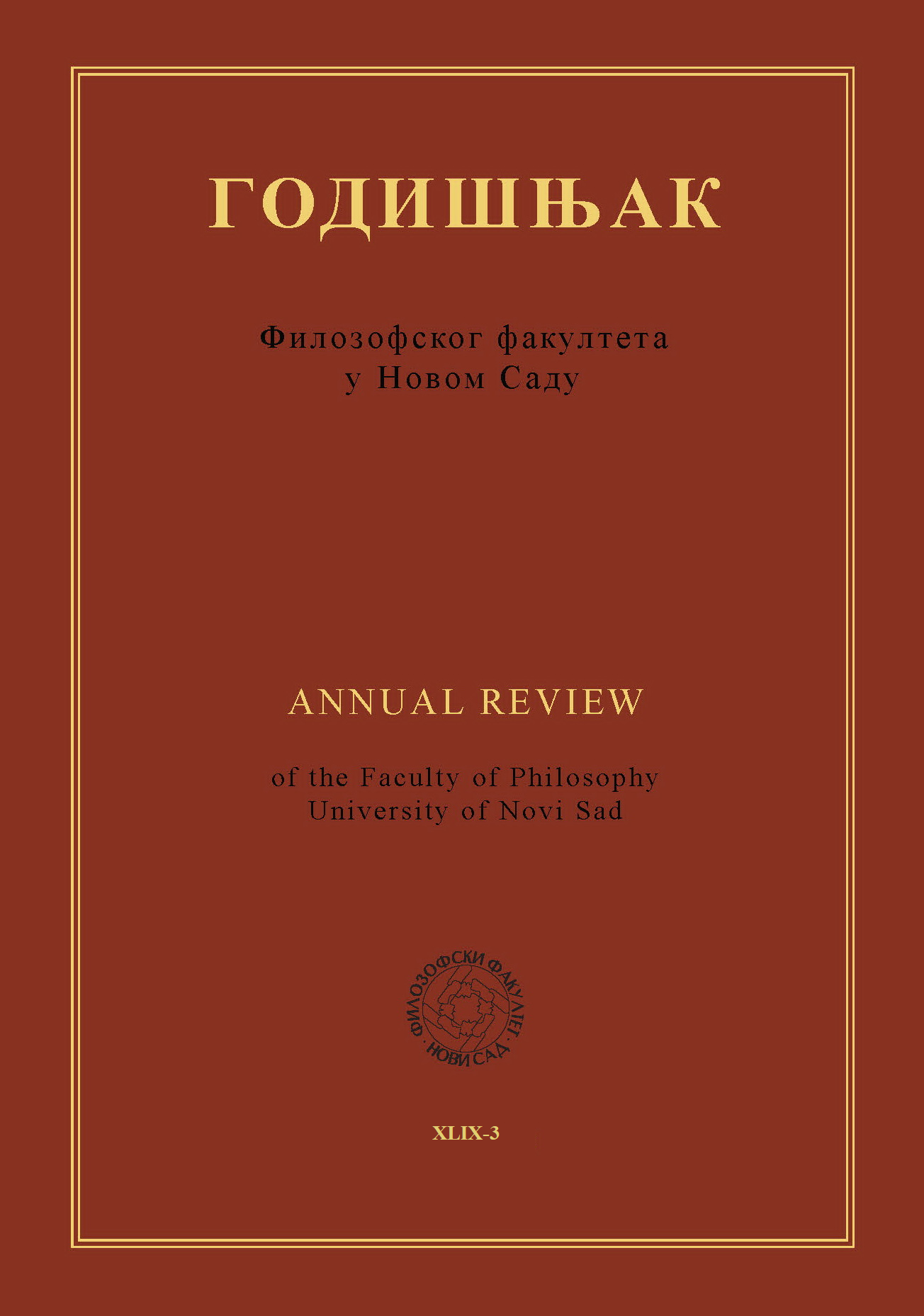THE TROUBLES OF THE YOUNG SERBIAN SPEAKER STRUGGLING WITH ITALIAN VERB TENSES
Main Article Content
Abstract
From the analysis of a narrative text by Andrić and the four translations of this text published in Italy, it emerges that translators had to apply to the Italian text the missing textual signals in Serbian, which are necessary for Italian. These textual signals correspond to a precise and targeted use of verb tenses, allowing for the incorporation of distinctions between narration and description, foreground and background, subjective and objective approaches in the translation. A cursory examination of correspondences between the Serbian perfekat and Italian past tenses reveals that the intention to establish precise rules in this matter appears futile or, at the very least, uncertain. In a Serbian literary text, such as the one under analysis, intersections between the categories of tense, aspect, action, and textual cohesion result in Italian translations characterized by divergent outcomes, dependent on the translator's personal interpretation and imprint as an author. It is the latter's responsibility to consider the parameters governing textual cohesion in Italian, evaluate the semantic or pragmatic value of the Serbian perfekat in a given text segment, and ultimately render it in Italian with the deemed appropriate verb forms. As shown by the presented examples, personal interpretations vary from translator to translator: this freedom of choice is dictated by the nature of the perfekat, flexible in textual functions that in Italian necessitate almost exclusive use of specialized tenses. In the analyzed Italian versions, it is not possible to give preference to any of the adopted variants, as all four texts meet the criteria of semantic correspondence with the original and textual cohesion. The differences observed in the use of Italian tenses may inspire similar research on other texts translated multiple times from Serbian to Italian, but we believe that an even more stimulating field of inquiry is the Serbian language itself, where the elusive linguistic signals determining the transitions between narration and exposition should be sought. The Italian translator is tasked with providing, through judicious use of verb tenses, a subjective interpretation of the original text, introducing elements of textuality absent in the Serbian original but essential in the Italian version.
Downloads
Metrics
No metrics found.
Article Details

This work is licensed under a Creative Commons Attribution-ShareAlike 4.0 International License.
References
Bertinetto, P.M. (1986). Tempo, aspetto e azione nel verbo italiano. Firenze. Accademia della Crusca
Ceković-Rakonjac, N. (2012). Difficoltà di apprendimento dei tempi e dei modi verbali dell’italiano L2 da parte degli apprendenti serbofoni. Belgrado. Philologia 2012, 10, pp. 1-11 DOI: https://doi.org/10.18485/philologia.2012.10.10.1
Janićijević, N. (2016). Analisi contrastiva del presente “pro futuro” in italiano e in serbo. Belgrado. Italica Belgradensia 2016(2), pp. 51-62 DOI: https://doi.org/10.18485/italbg.2016.2.3
Klajn, I. (2007). Grammatica della lingua serba. Belgrada. Zavod za udžbenike
Lucchesi V. L. (1971). Fra grammatica e vocabolario. Studi sull’aspetto del verbo italiano. Studi di grammatica italiana 1, pp. 179-270
Moderc (1996). Prevođenje srpskih prošlih vremena na italijanski. Magistarski rad. Filološki fakultet, Univerzitet u Beogradu
Moderc-Barbi (2016). La traduzione italiana di Fahrenheit 451. Alcune considerazioni. La fictio sul palcoscenico della storia. Atti dell’VIII convegno internazionale AIBA. A cura di D. Janjić, V. Fiore, R. Russi. Università di Kragujevac, pp. 101-116
Moderc-Kukić (2018). Prezent u romanu „Na Drini ćuprija“ i njegova prevodivost na italijanski jezik. Beograd. Srpski jezik XXIII, pp. 391-407
Piper, P.-Klajn I. (2013). Normativna gramatika srpskog jezika. Novi Sad. Matica srpska
Weinrich, H. (1978). Tempus. Le funzioni dei tempi nel testo. Bologna. Il Mulino
FONTI
Andrić, I. Priča o vezirovom slonu i druge pripovetke. Beograd. Rad 1963
Andrić, I. I tempi di Anika e altri racconti. Milano. Bompiani 1966
Andrić, I. La sete. Firenze. Vallecchi 1954
Andrić, I. Racconti di Bosnia. Roma. Newton Compton editori 1995
Andrić, I. Romanzi e racconti. Milano. Mondadori 2001




